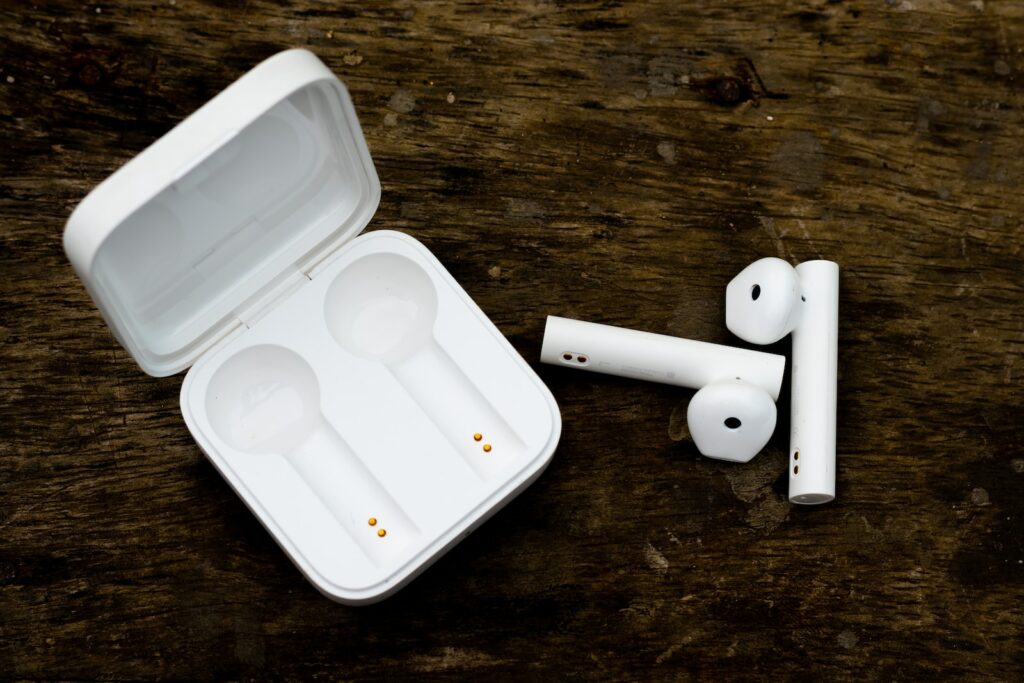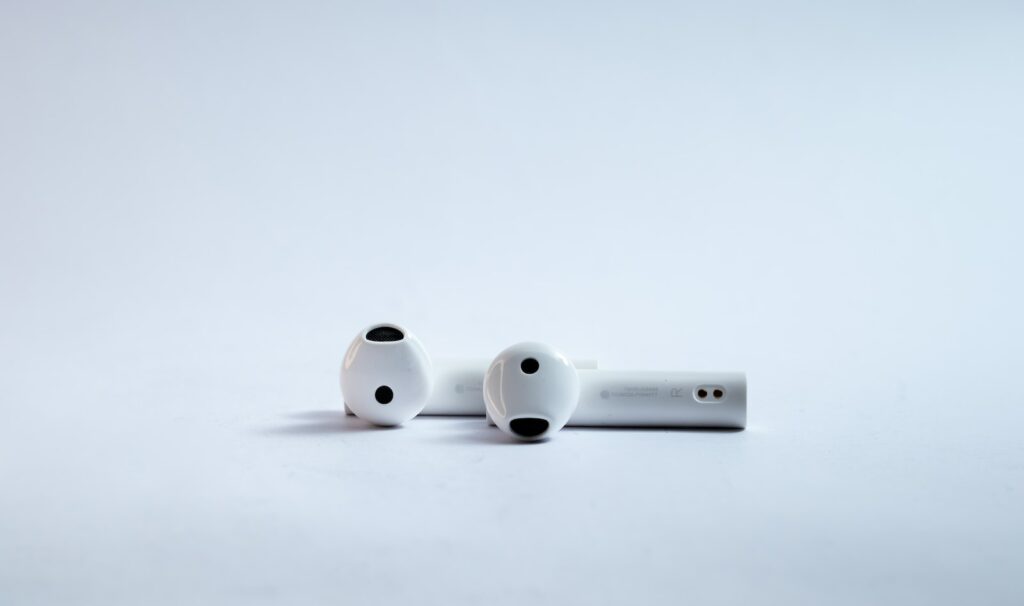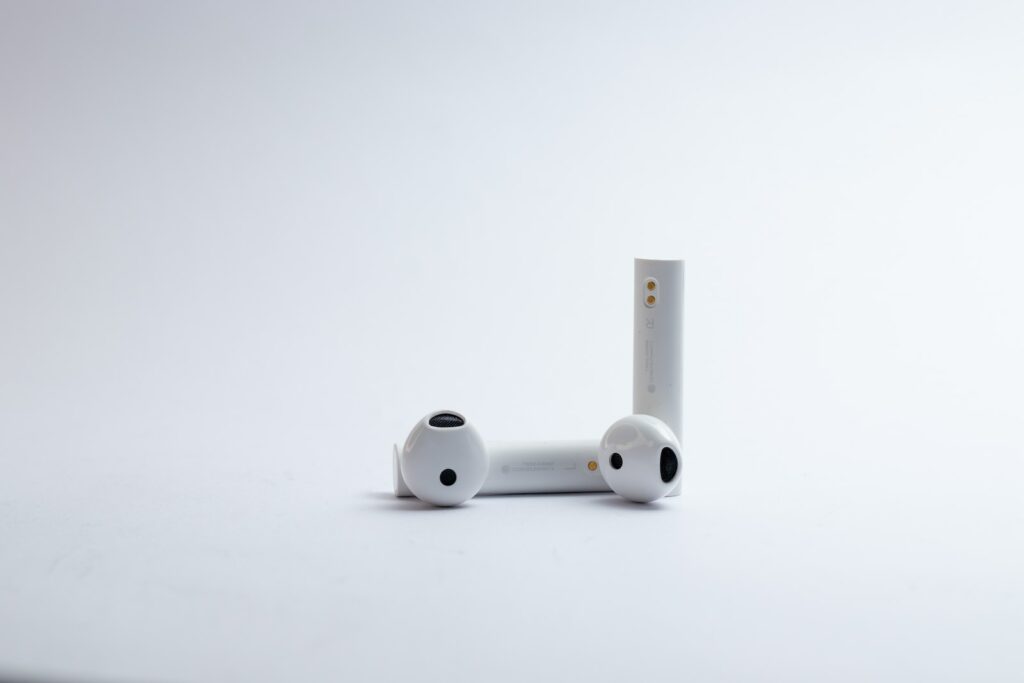As technology continues to advance, many of us find ourselves pondering the age-old question: are wired headphones safer than Bluetooth? To adequately answer this question, we must consider a variety of factors, including overall sound quality, user experience, and potential health risks presented by radiation exposure.

Wired headphones have long been the standard choice for audio enthusiasts seeking the highest fidelity in sound quality. Their use of physically propagated analog signals allows for the transmission of more data, resulting in a superior listening experience. However, the rise of wireless Bluetooth technology has brought about a new era of convenience, particularly for those who live an active lifestyle or need to be mobile during their day-to-day activities.
Examining the potential health risks associated with each type of headphone is essential. While some studies suggest that Bluetooth headphones emit more radiation than their wired counterparts, it’s important to remember that further research is needed to solidify these claims and establish a clear consensus among experts.
Key Takeaways
- Wired headphones typically offer superior sound quality over Bluetooth options
- Bluetooth headphones provide greater convenience and mobility for daily use
- Health risks associated with radiation exposure from headphones require further research and should be factored into personal considerations.
Wired vs. Wireless: General Overview

When it comes to listening to music or taking calls, we have two main options: wired and wireless headphones. Wired headphones use a physical cable to connect to devices, while wireless headphones rely on Bluetooth technology to transmit audio signals without cords. Each type has its advantages and disadvantages, which we’ll explore in this section.
With wired headphones, the connection is more stable, as it doesn’t rely on radio frequency signals. This means that there’s less chance of interference or signal dropout, providing a consistent audio experience. On the downside, wired headphones can be limiting in terms of mobility, as they tether us to the device they’re plugged into.
On the other hand, wireless headphones offer greater freedom of movement, as no cords bind us to our devices. This increased flexibility is especially useful during workouts or when we’re on the go. Moreover, advancements in Bluetooth technology allow for connecting two Bluetooth headphones simultaneously which is great for sharing music or movies with a friend. The main disadvantage of wireless headphones is the need to charge them regularly, and they may be more susceptible to radio frequency interference.
As for safety concerns, wired headphones do not emit any radio frequency waves, making them a safer option in terms of potential radiation exposure. However, both Bluetooth and wired headphones’ radiation levels have been deemed safe by the overwhelming consensus of scientific research.
In terms of cost, wired headphones are generally more affordable than wireless ones, but that doesn’t mean you can’t find cheap Bluetooth headphones worth considering. It’s always a good idea to weigh the pros and cons of each type according to our individual needs and preferences.
Finally, when it comes to connecting wireless headphones to other devices, the process may vary. For example, if you’re wondering how to connect Bluetooth headphones to your TV, it can be as simple as enabling the TV’s Bluetooth feature and pairing the headphones. On the other hand, wired headphones typically just require plugging them in.
In conclusion, both wired and wireless headphones have their benefits and drawbacks, and it’s up to us to decide which option suits our needs best. Whether prioritizing mobility, cost, or stability, there’s a headphone option out there for everyone.
Benefits of Wired Headphones
When choosing a pair of headphones, it’s important to consider the advantages that wired options offer over their Bluetooth counterparts. One of the most notable benefits is better sound quality. With wired headphones, the audio signal is transmitted through a physical connection, which usually results in superior audio quality when compared to wireless alternatives.
Wired headphones also provide an excellent soundstage, an attribute that measures the perceived spatial aspects of the listening experience. A great soundstage can make you feel like you’re engulfed in a live performance, rather than just listening to a recording. This immersive quality is often more pronounced in wired headphones, giving listeners a more engaging experience.
Another advantage is compatibility. Wired headphones can be easily used with various devices, as they generally feature standardized connectors, such as the 3.5 mm audio jack. This means that even older devices lacking Bluetooth capabilities can benefit from the enhanced sound quality offered by wired headphones.
Moreover, wired headphones present an opportunity for those who desire a more customized listening experience, as they can easily be paired with external digital-to-analog converters (DAC). DACs allow listeners to refine and tailor audio quality to suit their preferences, offering additional control that may not be available with Bluetooth options.
In conclusion, wired headphones offer numerous advantages, including better sound quality, an exceptional soundstage, wider compatibility, and the potential for customization through the use of external DACs. These benefits should be carefully considered when deciding between wired and Bluetooth alternatives.
Drawbacks of Wired Headphones
While wired headphones offer several advantages, they come with their own set of drawbacks. One main issue is the cable that connects the headphones to the device. Over time, the cable can become twisted, tangled, and damaged, which can affect audio quality or even render the headphones unusable. There are ways to fix broken headphones, but prevention is always better than cure.
Another drawback is the reliance on the headphone jack for connectivity. As technology advances, some devices, such as smartphones, are phasing out the traditional headphone jack, making it more challenging to use wired headphones without adapters. Additionally, the headphone jack can also accumulate dirt or dust, which may impact audio quality.
Mobility can be somewhat restricted with wired headphones. The cable length determines the range of movement, and longer cables can get in the way while shorter cables may not provide enough freedom for certain activities. This limitation can be especially bothersome during workouts or when moving around in general.
Despite these drawbacks, wired headphones still provide excellent audio quality and can be a reliable choice for users who don’t mind the limitations of cables and headphone jacks. Just remember to maintain good cable management and keep the headphone jack clean to prolong the life of your wired headphones.
Advantages of Bluetooth Headphones

We all love the simplicity and convenience Bluetooth headphones bring to our lives. Being wireless and connecting via Bluetooth, they offer us the freedom to move around without getting tangled up in cables. Not only is this great for everyday use, but it’s also beneficial when performing physical activities like exercise, as we don’t need to worry about the cords getting in the way or limiting our movement.
Another fantastic feature of Bluetooth headphones is their range. Depending on the model, we can have a considerable distance between our devices and headphones and maintain a stable connection. Some Bluetooth headphones have a range of up to 30 feet, allowing us to move freely without losing the connection to our audio source. This feature is especially useful when we want to listen to music or participate in a conference call on our phones while moving around our homes or offices.
Convenience is one of the most significant benefits of Bluetooth headphones. Connecting our devices is usually a seamless process, with most modern smartphones and other gadgets featuring built-in Bluetooth capabilities. Furthermore, Bluetooth headphones have become increasingly popular for traveling, and many people wonder if they can use their Bluetooth headphones on a plane. The good news is that many airlines now allow the use of Bluetooth headphones during flights, making it convenient for travelers to enjoy their favorite audio content without disturbing fellow passengers.
In addition to providing a comfortable and tangle-free experience, Bluetooth headphones are also compatible with various devices, including gaming consoles. For example, you might be interested in learning if Bluetooth headphones can be used on your Nintendo Switch. The process of connecting them to various devices is usually straightforward, and there are numerous guides available online to help us do so.
Bluetooth headphones have come a long way since their invention, and they continue to improve in terms of sound quality, battery life, and features. As a result, we have a wide range of options to choose from, making it easier than ever to find the perfect pair to suit our preferences and needs.
Disadvantages of Bluetooth Headphones
Bluetooth headphones have become increasingly popular due to their convenience and ease of use. However, there are a few disadvantages that we should consider when choosing between Bluetooth and wired headphones.
One main concern with Bluetooth headphones is their battery life. Unlike wired headphones that don’t require batteries, Bluetooth headphones rely on an internal battery that needs to be charged. This means that you might not always have access to your music or other audio content when the battery dies. Additionally, batteries can potentially explode if mishandled, posing a safety risk.
Another issue with Bluetooth headphones is their range. Since they rely on wireless Bluetooth technology, the distance between your headphones and the device they’re connected to can affect their performance. Bluetooth technology can reach varying distances, with factors such as interference and physical barriers reducing its range. Learn more about the range of Bluetooth and its limitations.
Audio quality tends to be another area where Bluetooth headphones fall short compared to wired headphones, although improvements have been made in recent years. Wired headphones use physically propagated analog signals, which can transmit more data than wireless audio signals. The result is better sound quality in wired headphones.
Next, let’s talk about latency. While this may not be a concern for some users, those who need real-time audio, such as gamers or musicians, might find the latency present in some Bluetooth headphones to be an annoying issue. The wireless nature of Bluetooth technology can lead to slight delays in audio transmission, which can impact the overall experience.
Lastly, Bluetooth headphones can be more prone to audio interference or connectivity issues. For example, you may experience crackling audio or frequent disconnections from your device. This can be frustrating, especially when you’re trying to enjoy your audio content.
Despite these disadvantages, many users still prefer Bluetooth headphones for their convenience and wireless capabilities. We encourage you to weigh these factors when deciding between Bluetooth and wired headphones.
Latency Issues with Bluetooth Headphones
One of the most noticeable differences between wired and Bluetooth headphones is latency. In a wired connection, the typical audio latency is 5-10 ms, whereas Bluetooth latency can range from an ideal 34 ms (aptX LL) up to 100-300 ms for true wireless earbuds and headphones 1. When watching video content or gaming, latency can cause the audio to be out of sync with the visuals, resulting in a less-than-ideal experience.
This latency stems from the differences in how audio signals are transmitted. Wired headphones use physically propagated analog signals, which can transmit more data than wireless audio signals 2. Bluetooth headphones, on the other hand, rely on digital wireless technology. Audio needs to be compressed, transmitted, decompressed, and processed, which can cause delays that are perceivable, especially in applications where timing is crucial, like gaming or video content.
Moreover, Bluetooth devices often include additional features that can contribute to latency, such as active noise cancelation or power management systems. These extra features cause the audio processing chain to require more time, further increasing latency.
Despite these latency issues with Bluetooth headphones, many users still find them appealing due to their convenience and lack of wires. Some devices offer aptX Low Latency codecs that help minimize audio delay, making the experience more enjoyable. However, in situations where low latency is essential, such as gaming or editing videos, we recommend using wired headphones for their faster audio signals and minimal latency.
Impact on Health and Safety
When it comes to the impact of wired and Bluetooth headphones on our health and safety, there are a few factors to consider. One main concern is the exposure to radiation. Bluetooth headphones, like other wireless devices, emit non-ionizing electromagnetic radiation (EMR). However, according to the Food and Drug Administration (FDA), non-ionizing radiation is generally perceived as harmless to humans.
On the other hand, wired headphones can sometimes increase the brain’s exposure to radiation as wires can act as antennas, conducting radiation from EMF-emitting devices like cellphones. A study found that wired headphones can sometimes expose the brain to up to 3 times more radiation than Bluetooth headphones.
Another aspect to consider is heat generation. Both wired and Bluetooth headphones produce heat. However, Bluetooth devices typically generate more heat due to their wireless capabilities. It is essential to pay attention to the temperature of your headphones during prolonged use, as excessive heat can cause discomfort and even potential skin issues.
Safety is another concern when using headphones, particularly while driving or engaging in activities that require full situational awareness. With concerns surrounding inner-ear damage and hearing loss, some people are more inclined to use bone conduction headphones that allow for better situational awareness without compromising audio quality.
Regarding driving with headphones, it’s crucial to know the legality and safety implications. In some regions, driving with headphones is considered illegal, while in others, it’s allowed. Nonetheless, using headphones while driving can impair your ability to hear emergency sirens, horns, or other important sounds, which poses a safety risk.
Lastly, there have been concerns about Bluetooth headphones causing cancer. While non-ionizing radiation is generally considered safe, some individuals still worry about the potential for long-term effects. The current research on Bluetooth headphones and cancer risk has not found any definitive links between the two.
Considering Personal Needs and Preferences
When deciding between wired and wireless headphones, it’s essential to consider your personal needs and preferences. Each individual has different requirements based on their lifestyle, hobbies, and priorities.
Gamers, for instance, often prefer wired headphones due to the lower latency and better sound quality they offer. A direct connection to the gaming console or PC ensures a more immersive and responsive gaming experience. On the other hand, wireless headphones may introduce audio lag, which could negatively affect the overall experience.
Music lovers might prioritize sound quality above all else. In this case, wired headphones tend to provide better audio fidelity since there is no loss of quality during wireless transmission. However, if convenience and mobility are more important, wireless headphones offer freedom from cables and the ease of connecting to multiple devices.
For those with an active lifestyle, wireless headphones can be a game-changer. They allow you to move without the constraints of cords, making them ideal for activities like running, cycling, or working out at the gym. The absence of cables also reduces the chance of tangling or getting caught on something.
Your personal preference plays a significant role in the choice between wired and wireless headphones. Some people prefer the simplicity of plugging in a cable, while others appreciate the convenience of Bluetooth connectivity. Additionally, some users might find wireless headphones more comfortable due to the absence of cords, while others might prioritize the reliability of a wired connection.
When considering your needs, think about how often and where you’ll be using your headphones. If you sit at a desk for hours, wired headphones might be more suitable and provide better audio quality. However, if you’re constantly on the move or switching between devices, wireless headphones offer flexibility and adaptability to your ever-changing environment.
By taking the time to consider your personal needs and preferences, you can make a more informed decision when choosing between wired and wireless headphones. Weigh the pros and cons of each option, and select the one that best aligns with your lifestyle and priorities.
- Why is my fitness tracker not holding a charge? Your Lazy Battery Might Need a Pep Talk - February 9, 2026
- How to use Bluetooth headphones with a treadmill Without Accidentally Inventing a New Dance Move - February 8, 2026
- Fitbit Battery Life Comparison: Which Tracker Won’t Abandon You First? - February 8, 2026






